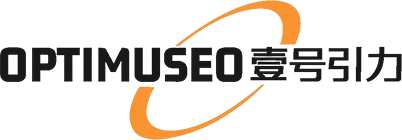Search Engine Optimization (SEO) is the process of improving a website’s visibility in search engine results. This is achieved through a combination of techniques and strategies that help search engines understand the content and relevance of a website. The ultimate goal of SEO is to increase organic traffic to a website, which can lead to higher conversion rates and ultimately, more revenue for a business.
One of the key components of SEO is keyword optimization. This involves researching and identifying the most relevant keywords for a particular industry or niche, and then strategically incorporating them into the website’s content. Other important aspects of SEO include on-page optimization, such as meta tags and headings, as well as off-page optimization, such as link building and social media marketing. By understanding the basics of SEO, businesses can improve their online visibility and attract more potential customers.
Utilizing Data Analysis for SEO Success
Data analysis plays a crucial role in the success of SEO efforts. By analyzing website traffic, user behavior, and conversion rates, businesses can gain valuable insights into the effectiveness of their SEO strategies. This data can help identify areas for improvement, such as underperforming keywords or pages with high bounce rates. By utilizing data analysis tools and techniques, businesses can make informed decisions about how to optimize their websites for better search engine rankings.
In addition to website data, businesses can also use external data sources to inform their SEO strategies. For example, analyzing industry trends and competitor data can provide valuable insights into what keywords and content are performing well in a particular niche. By leveraging data analysis for SEO success, businesses can stay ahead of the competition and continuously improve their online visibility.
The Impact of Keywords on Conversions
Keywords play a critical role in driving conversions on a website. When users search for specific keywords related to a business or product, they are more likely to convert into customers. By targeting the right keywords and incorporating them into website content, businesses can attract more qualified leads and increase their conversion rates.
In addition to targeting high-converting keywords, businesses should also consider the intent behind the keywords. For example, some keywords may indicate that a user is in the research phase, while others may signal that they are ready to make a purchase. By understanding the impact of keywords on conversions, businesses can tailor their content and marketing strategies to better meet the needs of their target audience.
Optimizing Your Website for Conversion
Optimizing a website for conversion involves creating a seamless user experience that encourages visitors to take action. This can include improving website speed, creating clear calls-to-action, and providing valuable content that addresses the needs of potential customers. By optimizing for conversion, businesses can increase the likelihood that visitors will take the desired action, whether it’s making a purchase, signing up for a newsletter, or filling out a contact form.
Another important aspect of website optimization is ensuring that it is mobile-friendly. With more users accessing websites on mobile devices, it’s crucial that businesses prioritize mobile optimization to provide a positive experience for all visitors. By optimizing their websites for conversion, businesses can maximize the impact of their SEO efforts and drive more valuable leads and sales.
Tracking and Analyzing Conversion Data
Tracking and analyzing conversion data is essential for understanding the effectiveness of SEO and marketing efforts. By monitoring key metrics such as conversion rates, click-through rates, and bounce rates, businesses can gain insights into how visitors are interacting with their website. This data can help identify areas for improvement and inform future marketing strategies.
In addition to website data, businesses should also track and analyze data from other sources, such as social media and email marketing campaigns. By understanding how different channels contribute to conversions, businesses can allocate resources more effectively and optimize their overall marketing strategy. By tracking and analyzing conversion data, businesses can make data-driven decisions that lead to better results.
Using SEO and Data Analysis to Improve Marketing Strategies
SEO and data analysis can be powerful tools for improving overall marketing strategies. By understanding which keywords and content are driving conversions, businesses can optimize their marketing efforts to focus on what works best. This can include creating targeted advertising campaigns, developing content that resonates with the target audience, and refining messaging to better address customer needs.
In addition to improving existing marketing strategies, SEO and data analysis can also inform new opportunities for growth. By identifying emerging trends and customer behaviors, businesses can stay ahead of the competition and capitalize on new opportunities in their industry. By using SEO and data analysis to improve marketing strategies, businesses can achieve better results and drive more revenue.
The Future of SEO and Data Analysis in Business Transformation
The future of SEO and data analysis holds great potential for transforming businesses. As technology continues to evolve, businesses will have access to more advanced tools and techniques for optimizing their online presence. This includes artificial intelligence and machine learning algorithms that can analyze vast amounts of data to provide actionable insights for improving SEO and marketing strategies.
In addition to technological advancements, the future of SEO and data analysis will also be shaped by changing consumer behaviors and preferences. Businesses will need to adapt to new trends in search engine algorithms, user intent, and content consumption in order to remain competitive. By embracing these changes and leveraging the power of SEO and data analysis, businesses can transform their online presence and drive sustainable growth in the digital age.
In conclusion, understanding the basics of SEO and utilizing data analysis are essential for driving success in today’s digital landscape. By optimizing websites for conversion, tracking and analyzing conversion data, and using SEO and data analysis to improve marketing strategies, businesses can achieve better results and drive more revenue. The future of SEO and data analysis holds great potential for transforming businesses, and by staying ahead of the curve, businesses can position themselves for long-term success in the digital age.


